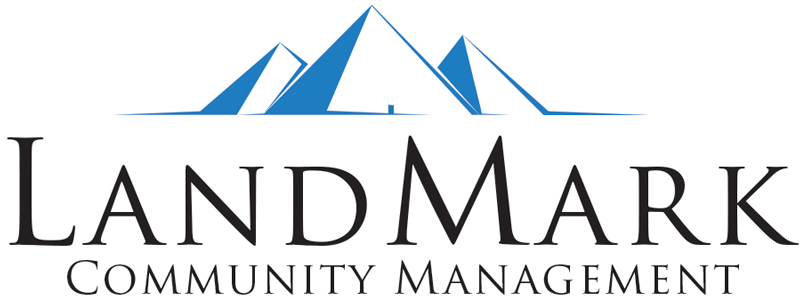Dealing with HOA homeowner requests is one of the many challenges board members face. Understanding how to handle and manage these requests is the key to ensuring a harmonious community. Unfortunately, not everyone knows the first thing about how to address requests, concerns, and complaints.
What Are HOA Homeowner Requests?
A homeowners association acts as the governing body of a planned community or development. Every HOA has a set of board members making decisions for the association. Every HOA also has homeowners, also known as members, who live in the community. These homeowners sometimes make requests or submit concerns to the association. When that happens, the HOA board must know how to handle the situation.
Homeowners association homeowner requests can come in many forms. A homeowner may wish to review association records or file a maintenance request. A homeowner may also bring a concern to the board’s attention or submit a complaint against another party. Whatever it may be, when faced with a submission from a homeowner, the board should follow proper procedures.
How to Manage HOA Homeowner Concerns and Requests
For some associations, dealing with homeowner concerns is easy. This is because they already have an established process outlined within their governing documents. If your HOA has yet to develop a procedure for handling homeowner requests, though, now is the time to do so.
Here are the steps you should take when faced with HOA homeowner requests.
1. Have a Submission System in Place
First, having a submission or filing system in place is important. This way, you can formalize the entire process. This also helps get complaints, requests, and concerns in writing.
For general requests, for instance, your HOA board can create a form that owners can fill out with their details. This can include the nature and specific information related to their request. The same goes for general concerns and complaints. Architectural requests usually follow a separate procedure, though.
Of course, you must also decide on the submission method. You can ask homeowners to mail their requests to an address or drop them off at the HOA office. You can also save paper by allowing email submissions.
If your HOA holds open forums at board meetings, you can also accept concerns during these forums. However, you must remember to include them in the minutes. You can also ask homeowners to complete a request or complaint form separately.
Keep in mind that not all associations are required to hold open forums. While Texas law requires board meetings to be open to all members, owners don’t have an inherent right to speak at these meetings. You should check your governing documents to see if they mandate open forums.
2. Acknowledge the Concern
After receiving a complaint or request, make sure to acknowledge it. This lets the homeowner know that your HOA board has seen their submission. A simple acknowledgment of receipt can help calm an owner’s nerves or anger.
3. Understand the Concern
Acknowledging the concern is only one step of the process. Your HOA board should also make an effort to understand the concern. Read through the request or complaint. Make sure you know where the owner is coming from. If you need additional information, don’t hesitate to contact the owner.
4. Check Applicable Laws
After understanding the concern, it is time to work on a solution. This should always involve checking federal, state, and local laws that may be related to the complaint or request. Doing this will help you develop a resolution and avoid potential liability.
5. Refer to Governing Documents
The next step in handling HOA homeowner requests is to check your governing documents. Your CC&Rs and bylaws should help you come to a reasonable decision. For example, if a homeowner complains about a neighbor’s parked vehicle and your governing documents prohibit that type of parking, your board can immediately act on the complaint.
6. Seek Advice from Professionals

Not all boards are equipped to handle all types of concerns or requests. When in doubt, it is always a good idea to ask your HOA manager for guidance or input. If the issue deals with laws or liability, make sure to seek counsel from a lawyer.
7. Address the Concern or Request
The final step is to address the request or concern. If all goes well, state laws and governing documents should help you reach a resolution. Once your HOA board has made a decision, communicate it with the homeowner who submitted the request. While some things can’t be rushed, it is best if your HOA board responds to a concern on time.
Does the HOA Board Need to Address All Complaints?
The HOA board should do its best to address all homeowner complaints and requests. If information is lacking, the board should conduct further investigation. It is also good to seek advice from the HOA manager, a lawyer, or other related professionals.
If your board needs more time, avoid losing touch with the complainant. Give them updates every now and then to reassure them that you’re working on the issue. Include the concern or request in the meeting agenda, too. This way, you can stay on top of the issue.
Of course, not all complaints or requests have a perfect ending. Sometimes, the board cannot address the concern even if it tries. For example, the request may conflict with state laws or the governing documents. In that case, the board should communicate with the homeowner and clearly explain why the HOA can’t comply with their request.
How an HOA Management Company Can Help
Handling HOA homeowner requests can be difficult. It requires time and a bit of legwork to accomplish. If your HOA board needs help with homeowner requests, an HOA management company can field concerns, research, and communicate with members.
Landmark Community Management can help HOAs and condos with homeowner requests and concerns. Call us today at 512-569-5527 or contact us online to learn more!


